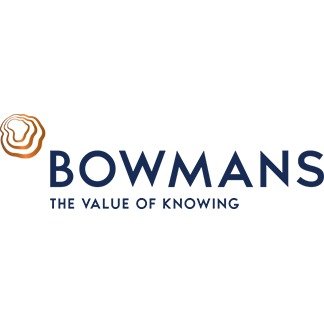Best Financial Services Regulation Lawyers in Cape Town
Share your needs with us, get contacted by law firms.
Free. Takes 2 min.
List of the best lawyers in Cape Town, South Africa
About Financial Services Regulation Law in Cape Town, South Africa
Financial Services Regulation in Cape Town, South Africa, encompasses the regulations and laws governing the financial services industry, including banks, insurance companies, and investment firms. It aims to protect consumers, ensure financial stability, and maintain market integrity. The regulatory environment in Cape Town is influenced by national legislation, including the Financial Sector Regulation Act and the Financial Advisory and Intermediary Services (FAIS) Act, among others.
Why You May Need a Lawyer
There are several common situations where individuals and businesses may require legal assistance in financial services regulation:
- Compliance Issues: Navigating complex regulatory requirements to ensure adherence to laws and avoid penalties.
- Dispute Resolution: Handling disputes with financial service providers or regulators.
- Licensing and Registration: Assisting financial institutions in obtaining necessary licenses and registrations.
- Advisory Services: Providing legal opinions on compliance and risk management.
- Contractual Matters: Drafting and reviewing contracts related to financial services.
Local Laws Overview
In Cape Town, the financial services sector is regulated under several key pieces of legislation:
- Financial Sector Regulation Act: Establishes a regulatory framework, including the Reserve Bank’s role in ensuring financial stability.
- FAIS Act: Governs the provision of advice and intermediary services in respect of financial products.
- National Credit Act: Promotes a fair and non-discriminatory marketplace for consumer credit.
- Insurance Act: Regulates the insurance industry to protect policyholders and support the sector’s economic role.
- Protection of Personal Information Act (POPIA): Regulates the processing of personal information by public and private bodies.
Frequently Asked Questions
What is the role of the Financial Sector Conduct Authority (FSCA)?
The FSCA regulates the conduct of financial institutions to protect financial customers by promoting their fair treatment and enhancing financial education.
Who needs to be compliant with the FAIS Act?
Anyone who provides advice or intermediary services concerning financial products must comply with the FAIS Act, including obtaining the appropriate licenses.
How can I file a complaint against a financial service provider?
Complaints can typically be filed with the Ombudsman for Financial Services, who provides an independent dispute resolution service.
What penalties exist for non-compliance with financial regulations?
Penalties include fines, suspension of operations, or withdrawal of licenses. These vary depending on the severity and nature of the non-compliance.
Do I need a license to offer financial services in Cape Town?
Yes, you will need to apply for the appropriate licenses depending on the services provided, such as those required under the FAIS Act.
What are the key compliance requirements under the Insurance Act?
Compliance requirements include sufficient capital reserves, adherence to solvency requirements, and operational requirements to protect policyholders.
How does the POPIA impact financial services regulation?
POPIA impacts how financial services businesses handle personal data, mandating strict compliance with data protection principles.
Can businesses in Cape Town offer cross-border financial services?
Offering cross-border financial services is subject to international agreements and regulations and may require additional licenses or permissions.
What is the National Credit Act's effect on lenders?
This act regulates credit transactions, ensuring responsible lending and protecting consumer rights.
Is it mandatory to have a compliance officer in financial institutions?
While it is not mandatory for all, larger financial institutions typically have dedicated compliance officers to ensure adherence to regulatory requirements.
Additional Resources
- Financial Sector Conduct Authority (FSCA): Oversees market conduct regulation.
- South African Reserve Bank (SARB): Ensures financial system stability.
- Ombudsman for Financial Services: Provides dispute resolution services.
- National Credit Regulator (NCR): Enforces the National Credit Act.
- South African Insurance Association (SAIA): Industry association providing resources and guidance.
Next Steps
If you need legal assistance with financial services regulation in Cape Town, consider the following steps:
- Identify Your Needs: Clearly define the issue you are facing, whether it's compliance, a dispute, or another matter.
- Consult a Lawyer: Seek advice from a qualified lawyer specializing in financial services regulation for tailored guidance.
- Engage with Regulatory Bodies: Reach out to relevant regulation authorities like the FSCA for specific inquiries.
- Stay Informed: Keep updated on any regulatory changes that may impact your activities.
Lawzana helps you find the best lawyers and law firms in Cape Town through a curated and pre-screened list of qualified legal professionals. Our platform offers rankings and detailed profiles of attorneys and law firms, allowing you to compare based on practice areas, including Financial Services Regulation, experience, and client feedback.
Each profile includes a description of the firm's areas of practice, client reviews, team members and partners, year of establishment, spoken languages, office locations, contact information, social media presence, and any published articles or resources. Most firms on our platform speak English and are experienced in both local and international legal matters.
Get a quote from top-rated law firms in Cape Town, South Africa — quickly, securely, and without unnecessary hassle.
Disclaimer:
The information provided on this page is for general informational purposes only and does not constitute legal advice. While we strive to ensure the accuracy and relevance of the content, legal information may change over time, and interpretations of the law can vary. You should always consult with a qualified legal professional for advice specific to your situation.
We disclaim all liability for actions taken or not taken based on the content of this page. If you believe any information is incorrect or outdated, please contact us, and we will review and update it where appropriate.















